“The film is so iconic, we never wanted to just remake it. We wanted to find a reason to tell it”: Rachel Weisz and Alice Birch on Dead Ringers
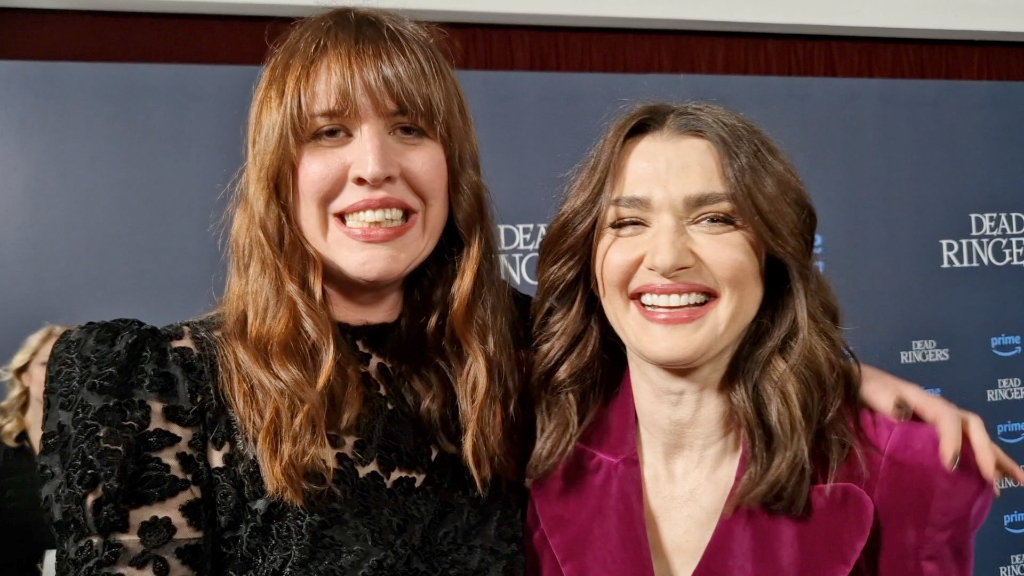
Bringing David Cronenberg’s 1988 psychosexual thriller Dead Ringers firmly into the 21st century for a new Prime Video show are writer Alice Birch (Conversations with Friends, Normal People) and Rachel Weisz (The Favourite, The Mummy), the latter arguably delivering one of her greatest roles to date in this radical and fresh take on the material. Well, perhaps we should say two of her greatest roles, as here she steps into the dual shoes previously worn by Jeremy Irons as co-dependent twin gynaecologists Elliot and Beverly.
The series brazenly leans into Cronenberg’s penchant for body horror, with blood and bodily fluids gorily plastered across many a scene featuring the hyperrealistic invocation of the act of childbirth. While the story was subversive to begin with, this version perhaps seems more so when gender-flipped, the acid-tongued nature of the dual protagonists, with a shared appetite for pleasure, all the more taboo-busting when from a female perspective.
The Upcoming had the chance to hear from Weisz and Birch on how they approached adapting the series from the film, the most intense moments to shoot and putting female pleasure front-and-centre.
Rachel, it’s probably fair to say that you’re a bit of a lesbian icon. You’ve talked about the Beverly and Genevieve relationship not being a conscious decision. But something that you not only do really well in your career, but you’ve done really well together is to create a really normalised representation. Is there a sense of satisfaction that comes with being able to achieve that, even if it’s a byproduct?
Rachel Weisz: Of course, yeah. I think there’s a lot of satisfaction in that.
Alice Birch: Yeah, I think that’s the whole hope. That’s the thing we’re striving for – for it to feel real and authentic, and particularly that relationship: we wanted it to feel romantic and full of potential. So it’s wonderful if that happens.
Focusing in on the body horror aspects, we’re so used to watching blood and gore and ludicrous situations in horror films, yet what’s really interesting in this show is that it’s a hyper-realistic portrayal of the woman’s body and childbirth. But from the reactions of the audience, the blood and the gore seems more horrific to some than watching a horror film. What did you want to achieve by making it so visceral? And what does it say about our culture and Western film that we’re not used to seeing women’s bodies portrayed in this way?
RW: Great question.
AB: Yeah, really good question. It’s interesting to us to see that. As you say, we’ve watched death and violence, we’re so used to watching it and in a whole different [way], it sort of has its own cinematic language – it can be so many things. It’s funny, I understand why people are talking about it as graphic and bloody and like horror, but it’s birth. And when that goes right, that’s the most beautiful, miraculous thing ever. It was always there in the scripts from the beginning, it was always on the page that we would see births depicted in that way. And then every new collaborator that came and joined us sort of added to that – like Sean [Durkin] had a really clear vision of how to shoot those scenes. And, yeah, the makeup and the prosthetics, everybody was part of that process.
RW: Sean, who directed episode one and two, co-directed the last one and was an executive producer, I don’t think he’d mind me saying that he talked very vividly about being present at the birth of his first child. And it was really interesting to him to make it hyper-realistic – that’s what he said.
You must have to have a strong stomach to be doing all those scenes. If you’re squeamish, they’re hard to watch!
AB: I think also it’s very technical on the day: it’s a lot of prosthetics, talking a lot about camera and angles and lighting and, you know, the makeup people are coming in to brush on blood or work on a blood splatter. So I think that probably changes it slightly. But I don’t think I am very squeamish, no.
RW: I’m squeamish about violence. Not so much about babies being born.
What was the process like, adapting from a film to a series? How was it different adapting from a filmic source rather than, say, a written one?
AB: Really, really different, in my experience of doing it. I mean, the book adaptations I’ve done for screen, they feel a bit more like midwifery or something – like helping that book come up onto the screen. And, often, you just want to replicate the experience that you’ve had as a reader, particularly with something like adapting Sally Rooney, which is… it’s not about me, it’s about Sally Rooney and about really honouring that story and that world, so being as faithful as possible. This – obviously we’ve got six hours, we’ve got a lot more time to tell, maybe a lot more story. And I think the film is so iconic and so extraordinary and so its own thing that we never wanted to just remake it over six hours. We wanted to find a reason to tell it and they were different characters and had a slightly different story.
RW: There was a lot that came from… I mean, most of it came from your imagination and the imagination of the writers. The arc of the story – codependent twins, and a patient that comes between them – was what you took, but most of it is from your imagination.
AB: Yeah. And then you want to sort of play and nod to the film. That was a lot of fun, finding different ways – whether that’s through the colour palette or some of the lines or there’s a lot of music from the 80s in our show – just finding different ways to salute the film was fun, finding that balance.
RW: And Genevieve’s TV show, it’s called Rabid, which is another Cronenberg film. So it’s a homage to Cronenberg. And he’s such a master, but it’s another new thing, so it’s not quite an adaptation.
AB: No, it’s not, I wonder if there’s another word… Yeah, it definitely feels different – like a different thing.
You’ve said you love a dinner scene, and the dinner scenes in this are so good. What do you think it is about the setting that allows the truth to come out or all hell to break loose?
AB: Good question. I do love a dinner scene, I really do. I mean, I think we were talking about it earlier: my background is in theatre, and it does feel quite theatrical in terms of the writing, the challenge of the writing, having lots of people sitting around a table, and trying to make sure that you keep all of those characters and voices alive and present and in this space is actually just a technical challenge that I really like. I think it feels like it has the potential to go somewhere dramatic and exciting. I think when people are busy and there’s lots going on and you’re trying to keep the conversation going – I don’t know, it just feels like people are going to misbehave.
RW: But there’s also a kind of innate formality to a dinner that’s rather delicious to have when it falls apart. I mean, not all the dinner scenes fall apart…
AB: They do…
RW: They do actually, yeah, in terms of people maintaining their politeness.
AB: It doesn’t stay at the table in a happy, “Knife and fork down. Thank you. Lovely”.
RW: I guess that’s where families sit, around dinner tables. That’s where it all begins. Yeah, theatre!
Could you talk a bit more about how you explore female pleasure through the series, and how you put that front-and-centre? Whether it’s sexual appetite, where each twin wants to make sex work for them, or with Elliot, who has a voracious appetite for food, it feels quite radical in a way. Do you think that’s born out of the fact that the writer’s room and production are so female-driven?
AB: Yeah. It’s so lovely to hear you using those words, because we talked a lot about it in the room – about the importance of pleasure and joy and fun and levity, but also different kinds of pleasure, and I think Elliott definitely takes her pleasure very seriously. I mean, we knew that it was going to go somewhere darker, or that it would definitely spend time in darker and more tragic places. And so being able to counteract that with real pleasure in all its different forms was really important. And I think that was one of the first things that we found in our Elliot, that she’s an incredibly efficient pleasure seeker.
RW: And we talked a lot about the fact that, in the original film, the Mantle brothers had so much pleasure. Alice was like, “They’ve always got a martini glass in their hand! They’re always at a party or a gala!”. Until things go wrong… So yeah, I just think pleasure, human pleasure… I mean, these happen to be women. But yeah, they’re also having a lot of fun. A lot of fun.
The series seems to go at 100 miles an hour and just never stops. You’ve described a few very intense scenes, but what was the most intense one for you when filming?
RW: I mean, the ending, I guess. Obviously, we can’t talk about it because it would be a spoiler. But yeah, the final episode and all that occurs in it – that was very intense. But it’s not helpful because we can’t talk about it! I mean, there’s a lot of intensity in the show. And then there’s a lot of pleasure-seeking and joy and fun and a lot of dark humour. There were so many different colours all the time. And then what happens with Agnes is incredibly intense. It would be hard to choose one thing, but I would say that the show just runs the gamut of… hopefully it’s quite a ride, because it’s got a lot of highs and then a lot of quite intense humour and dark events.
AB: I think whenever Elliot’s not having a good time, and particularly the first time that was happening, that was – for all of us, it was like a real discovery. Because she’s so good at finding pleasure or making sure she’s having a good time, that when she isn’t, and it’s outside of her control. That was quite intense.
RW: Yeah and Karina Evans, the director… The first time Elliot isn’t having a good time, in episode four with Agnes, the actor didn’t want to let go of Elliot’s friendship. The director was saying, “She’s not having a good time” and I was like, “I think she is, I think she’s still having a good time!”. It was very funny. I mean, it’s funny looking back on it. It’s a serious moment.
Sarah Bradbury
Dead Ringers is released on Prime Video on 21st April 2023. Read our review here.
Watch the trailer for Dead Ringers here:

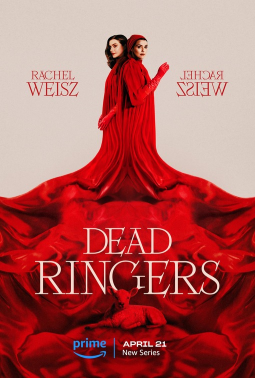
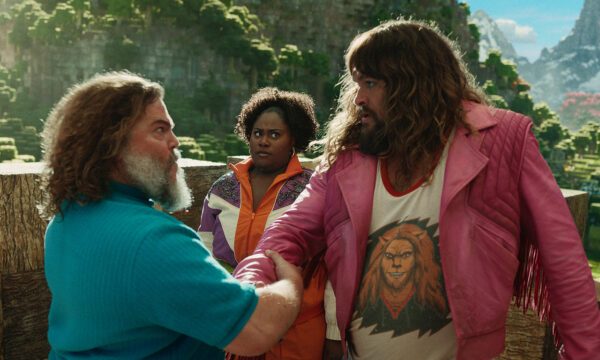
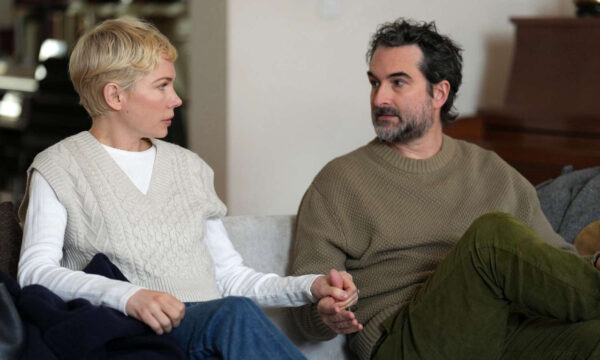
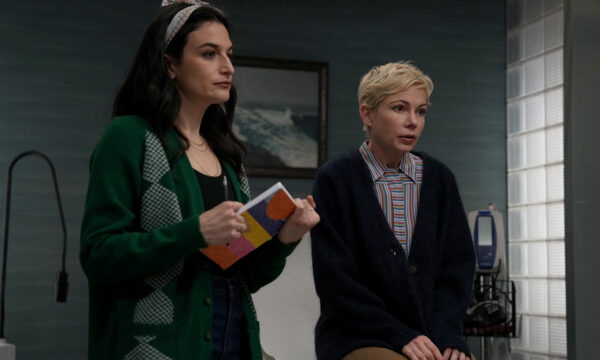


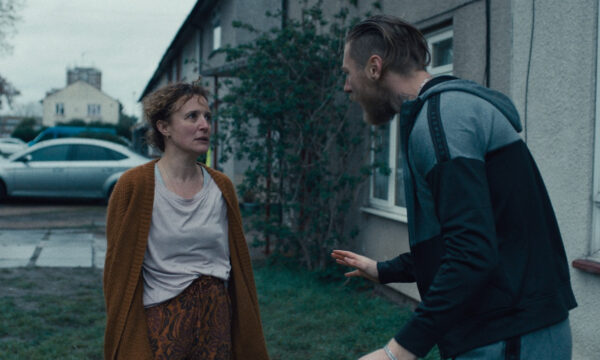












Facebook
Twitter
Instagram
YouTube
RSS